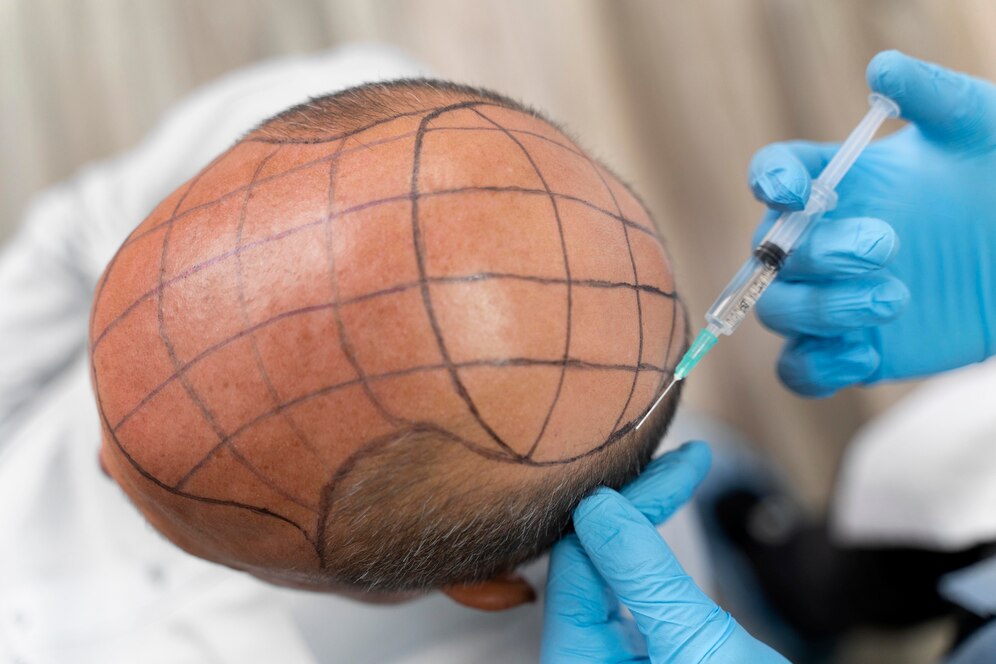
9 Must-Know Insights Before Your Hair Transplant Procedure
Are you considering a hair transplant procedure to address your hair loss concerns? If so, you’re not alone. Hair loss affects millions of people worldwide, and advancements in medical technology have made hair transplant procedures more accessible and effective than ever before. However, before you undergo this life-changing procedure, there are several key insights you should be aware of to ensure the best possible outcome. In this comprehensive guide, we’ll explore nine essential things you need to know before your hair transplant procedure, including the procedure itself, the cost, and what to expect during recovery.
- Understanding the Hair Transplant Procedure:
Hair transplant surgery involves the extraction of hair follicles from areas of the scalp where hair is plentiful, typically the back or sides of the head (known as the donor area), and implanting them into areas where hair is thinning or balding (the recipient area). There are two primary techniques used in hair transplant procedures: Follicular Unit Transplantation (FUT) and Follicular Unit Extraction (FUE). FUT involves removing a strip of tissue containing hair follicles, while FUE involves individually extracting follicular units. Your surgeon will determine the most suitable technique based on your specific needs and preferences.
- Researching Hair Transplant Clinics:
When choosing a clinic for your hair transplant procedure, it’s essential to do your research. Look for clinics with experienced surgeons who specialize in hair restoration and have a track record of successful outcomes.
Additionally, read reviews from past patients and ask for before-and-after photos to assess the quality of their work. Consider factors such as the clinic’s reputation, accreditation, and the technology they use in their procedures.
- Assessing the Cost of Hair Transplantation:
The cost of a hair transplant procedure can vary depending on various factors, including the extent of hair loss, the technique used, and the clinic’s location. In India, the cost of a hair transplant procedure is generally more affordable compared to Western countries, making it a popular destination for medical tourism. On average, the cost of a hair transplant in India ranges from INR 80,000 to INR 2,50,000 per session, depending on the number of grafts required.
- Understanding Hair Transplantation Statistics:
According to recent statistics, the global hair transplant market is experiencing steady growth, driven by factors such as the increasing prevalence of androgenetic alopecia (male and female pattern baldness), advancements in hair transplant techniques, and growing awareness about available treatment options. In India, the hair transplant market is also expanding, with a growing number of clinics offering state-of-the-art procedures at competitive prices.
- Managing Expectations:
It’s essential to have realistic expectations about the results of your hair transplant procedure. While modern techniques can achieve natural-looking outcomes, it’s important to understand that hair transplantation is not a cure for hair loss. The goal is to improve the appearance of thinning or balding areas and restore your confidence. Your surgeon will discuss what you can expect in terms of hair density, coverage, and growth timeline during your consultation.
- Preparing for the Procedure:
Before your hair transplant surgery, your surgeon will provide you with specific instructions to follow to ensure a successful outcome. This may include avoiding certain medications, such as blood thinners, and refraining from smoking to promote better healing. It’s essential to follow these guidelines closely to minimize the risk of complications and optimize the results of your procedure.
- Understanding the Recovery Process:
The recovery process following a hair transplant procedure typically involves some downtime, during which you may experience mild discomfort, swelling, and scabbing at the transplant sites. Your surgeon will provide you with post-operative care instructions, including how to wash your scalp and manage any discomfort. Most patients can resume their normal activities within a few days to a week after the procedure, although strenuous exercise should be avoided for a few weeks.
- Patience is Key:
Hair transplant results are not immediate, and it takes time for the transplanted hair follicles to establish themselves and begin producing new hair. It’s normal to experience some shedding of the transplanted hair in the weeks following the procedure. However, this is temporary, and new hair growth will gradually emerge over the coming months. Full results are typically visible within 9 to 12 months after the procedure.
- Follow-Up Care and Maintenance:
Once your hair transplant has fully healed and the new hair has grown in, it’s essential to maintain the health of your scalp and hair to preserve the results. This may include using specialised shampoos and treatments recommended by your surgeon, protecting your scalp from sun exposure, and avoiding harsh chemicals or styling techniques that could damage the hair follicles.
Conclusion:
Undergoing a hair transplant procedure can be a life-changing decision for individuals struggling with hair loss. By understanding the insights outlined above, including the procedure itself, the cost, and what to expect during recovery, you can approach your hair transplant journey with confidence and achieve the natural-looking results you desire. Remember to consult with a qualified and experienced surgeon to discuss your options and tailor a treatment plan that meets your unique needs and goals.
When contemplating a hair transplant, the allure of lower prices at smaller clinics can be tempting. However, numerous individuals later rue this choice upon finding themselves seeking corrective procedures at reputable clinics like ours. Opting for cheaper alternatives often results in double spending and dissatisfaction. Instead, I highly recommend selecting a well-established and experienced hair transplant clinic in India. Though their fees may be slightly higher, the outcomes are lasting, making it a valuable investment in both your appearance and self-assurance.